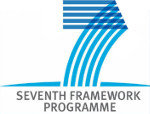Parental education associations with children's body composition: Mediation effects of energy balance-related behaviors within the ENERGY-project
Fernández-Alvira, J.M. ; te Velde, S.J. ; De Bourdeaudhuij, I. ; Bere, E. ; Manios, Y. ; Kovacs, E. ; Jan, N. ; Brug, J. ; Moreno, L.A. (Universidad de Zaragoza)
Resumen: Background: It is well known that the prevalence of overweight and obesity is considerably higher among youth from lower socio-economic families, but there is little information about the role of some energy balance-related behaviors in the association between socio-economic status and childhood overweight and obesity. The objective of this paper was to assess the possible mediation role of energy balance-related behaviors in the association between parental education and children''s body composition.Methods: Data were obtained from the cross sectional study of the " EuropeaN Energy balance Research to prevent excessive weight Gain among Youth" (ENERGY) project. 2121 boys and 2516 girls aged 10 to 12 from Belgium, Greece, Hungary, the Netherlands, Norway, Slovenia and Spain were included in the analyses. Data were obtained via questionnaires assessing obesity related dietary, physical activity and sedentary behaviors and basic anthropometric objectively measured indicators (weight, height, waist circumference). The possible mediating effect of sugared drinks intake, breakfast consumption, active transportation to school, sports participation, TV viewing, computer use and sleep duration in the association between parental education and children''s body composition was explored via MacKinnon''s product-of-coefficients test in single and multiple mediation models. Two different body composition indicators were included in the models, namely Body Mass Index and waist circumference.Results: The association between parental education and children''s body composition was partially mediated by breakfast consumption, sports participation, TV viewing and computer use. Additionally, a suppression effect was found for sugared drinks intake. No mediation effect was found for active transportation and sleep duration. The significant mediators explained a higher proportion of the association between parental education and waist circumference compared to the association between parental education and BMI.Conclusions: Tailored overweight and obesity prevention strategies in low SES preadolescent populations should incorporate specific messages focusing on the importance of encouraging daily breakfast consumption, increasing sports participation and decreasing TV viewing and computer use. However, longitudinal research to support these findings is needed.
Idioma: Inglés
DOI: 10.1186/1479-5868-10-80
Año: 2013
Publicado en: International Journal of Behavioral Nutrition and Physical Activity 10 (2013), 80 [9 pp]
ISSN: 1479-5868
Factor impacto JCR: 3.675 (2013)
Categ. JCR: PHYSIOLOGY rank: 16 / 81 = 0.198 (2013) - Q1 - T1
Categ. JCR: NUTRITION & DIETETICS rank: 18 / 79 = 0.228 (2013) - Q1 - T1
Financiación: info:eu-repo/grantAgreement/EC/FP7/223254/EU/EuropeaN Energy balance Research to prevent excessive weight Gain among Youth/ENERGY
Tipo y forma: Artículo (Versión definitiva)
Área (Departamento): Área Enfermería (Dpto. Fisiatría y Enfermería)
 Debe reconocer adecuadamente la autoría, proporcionar un enlace a la licencia e indicar si se han realizado cambios. Puede hacerlo de cualquier manera razonable, pero no de una manera que sugiera que tiene el apoyo del licenciador o lo recibe por el uso que hace.
Debe reconocer adecuadamente la autoría, proporcionar un enlace a la licencia e indicar si se han realizado cambios. Puede hacerlo de cualquier manera razonable, pero no de una manera que sugiera que tiene el apoyo del licenciador o lo recibe por el uso que hace.
Exportado de SIDERAL (2020-11-05-08:19:02)
Visitas y descargas
Idioma: Inglés
DOI: 10.1186/1479-5868-10-80
Año: 2013
Publicado en: International Journal of Behavioral Nutrition and Physical Activity 10 (2013), 80 [9 pp]
ISSN: 1479-5868
Factor impacto JCR: 3.675 (2013)
Categ. JCR: PHYSIOLOGY rank: 16 / 81 = 0.198 (2013) - Q1 - T1
Categ. JCR: NUTRITION & DIETETICS rank: 18 / 79 = 0.228 (2013) - Q1 - T1
Financiación: info:eu-repo/grantAgreement/EC/FP7/223254/EU/EuropeaN Energy balance Research to prevent excessive weight Gain among Youth/ENERGY
Tipo y forma: Artículo (Versión definitiva)
Área (Departamento): Área Enfermería (Dpto. Fisiatría y Enfermería)
Exportado de SIDERAL (2020-11-05-08:19:02)
Enlace permanente:
Visitas y descargas
Este artículo se encuentra en las siguientes colecciones:
Artículos
Registro creado el 2017-05-19, última modificación el 2020-11-05
